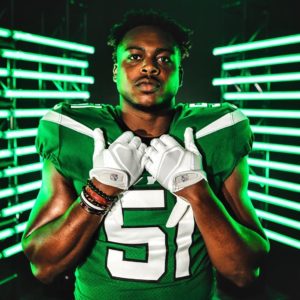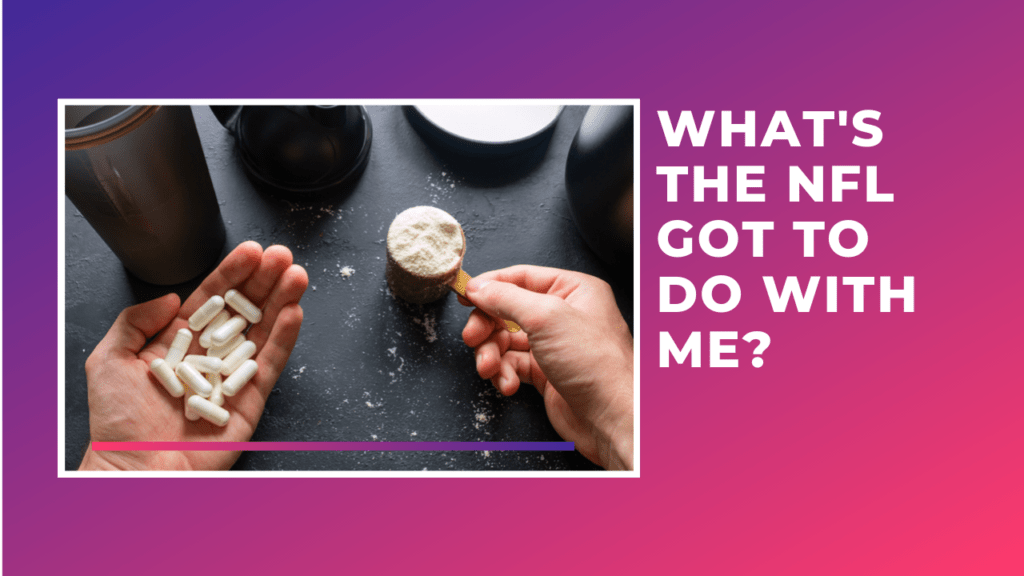Supplement Awareness and the Recreational Athlete In A Nutshell
New York Jets LB Brandon Copeland’s recent suspension for violating NFL banned substance policy has me thinking about supplement awareness and the recreational athlete. Regardless of what the label says or how enticing the claims, it’s up to the recreational athlete to have supplement awareness BEFORE taking any products. We all want someone to just tell us what to take and how to train, but your guru or that guy from GNC isn’t going to be there when you pop on a random drug test after your meet.
How I Got Here
I was just reading an article on the Nutraingredients website about an intended lawsuit by Brandon Copeland of the New York Jets against an unnamed supplement company. Apparently, he unintentionally took a supplement that contains a substance banned by the NFL. That mistake could cost him an estimated $300,000 this season.
The gist of the article is that although there are three separate certifying agencies for nutritional supplements and the DSHEA does regulate the supplement industry as the movie “Supps” points out, the ultimate onus is still on the athlete to make sure that whatever they’re taking meets the criteria for their sport’s governing body.
 What’s the NFL Got to Do With Me?
What’s the NFL Got to Do With Me?
I’m far from an NFL player or professional athlete of any kind. My competitive forays into powerlifting and other sports are mostly for fun and the challenge of preparing for a defined goal on a specific day. So does it matter what someone in my situation takes? Maybe, maybe not. That mostly depends on your moral stance on gray market supplements as well how much you trust a brand that skirts the rules to be diligent about keeping harmful substances out of their products. After all, by the time a harmful side effect shows up, it’s likely to have been long enough to make it difficult to trace back to that shady looking free sample you got from the bikini clad fitness model at the Arnold.
Think You’re Not Important Enough to Test?
The USA Powerlifting standard protocol for drug testing in powerlifting is to test a minimum of 10% of the lifters at a meet. The United States Powerlifting Association Drug -Tested takes a percentage based upon the number of lifters at a meet. USA Weightlifting tests based upon your competition results, random selection and intelligence gathered from the Play Clean Tip Line or other means.
Other drug-tested federations have other guidelines but basically, you need to know whether something you’re taking can cause you to fail a drug test and lose your entry and membership fees. Yes that can include doctor prescribed medication and seemingly innocent over the counter supplements.
My General Feelings
After bombing out of a meet because I decided to compete after 10 days of antibiotics, I usually just don’t compete if I’m sick. I don’t see the point since I’ll lose not only my meet registration but also the time and money spent on travel/food etc. if I bomb out again. So prescriptions aren’t normally an issue for me but I still check.
As for supplements, I personally only take products from brands that have a track record in the industry of not using shady gray market labeling, who don’t do unscrupulous things like amino spiking and who don’t have a ton of legal claims being filed against them. Sure it may not matter unless I plan to compete in a drug-tested federation. But sometimes I do compete in drug-tested events. Why risk losing my money and weeks of training because of some fly by night outfit’s negligence?
But more importantly, if I can’t trust you to be honest in your labeling, how can I trust that your product won’t be harmful to me either now, or down the road when I’ve long since thrown away the receipt and it’s impossible to pinpoint your product as the culprit?
USAPL Anti-Doping Policy (lots of helpful links here)
USA Weightlifting Drug Testing Policy (lots of helpful links)

